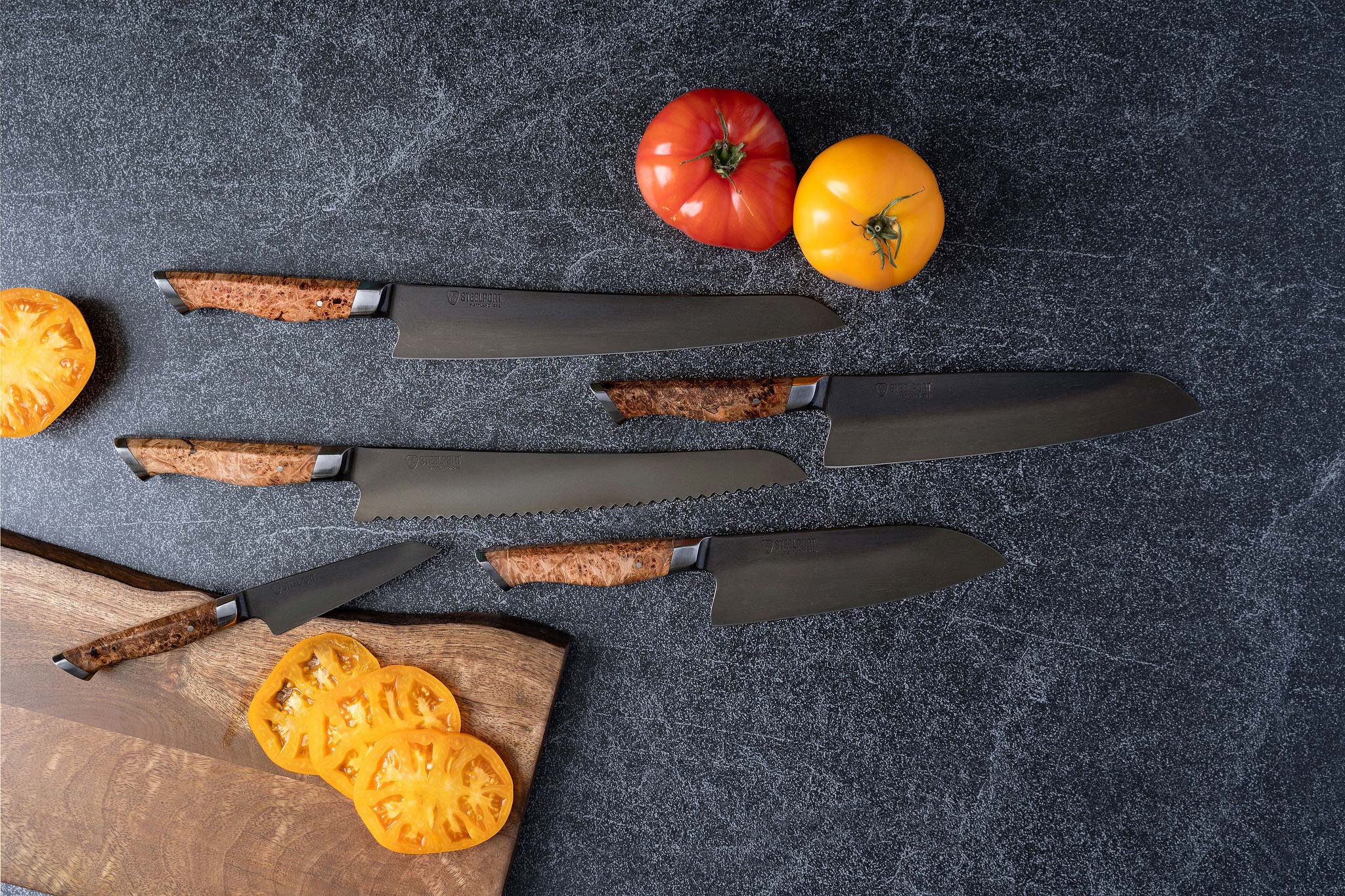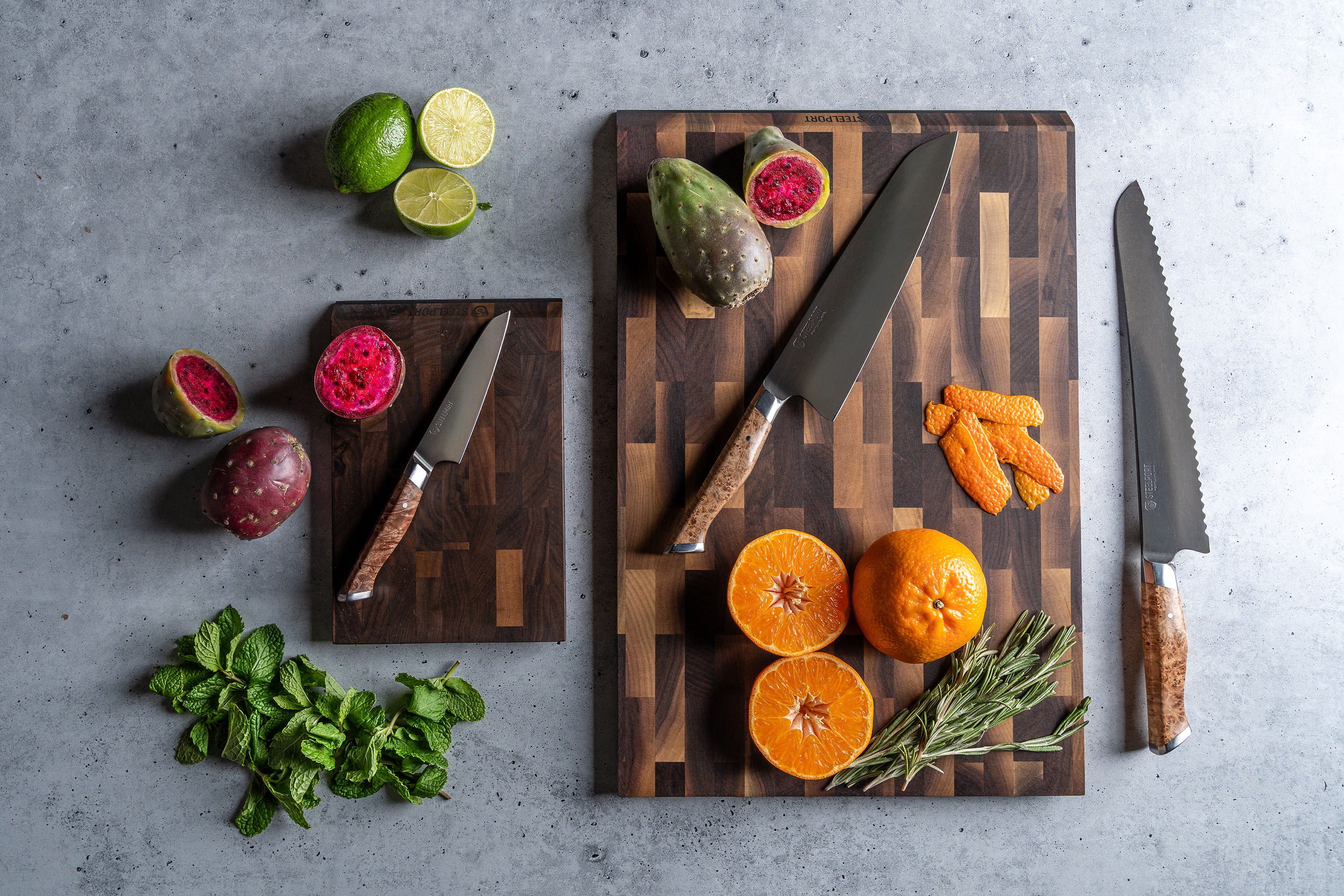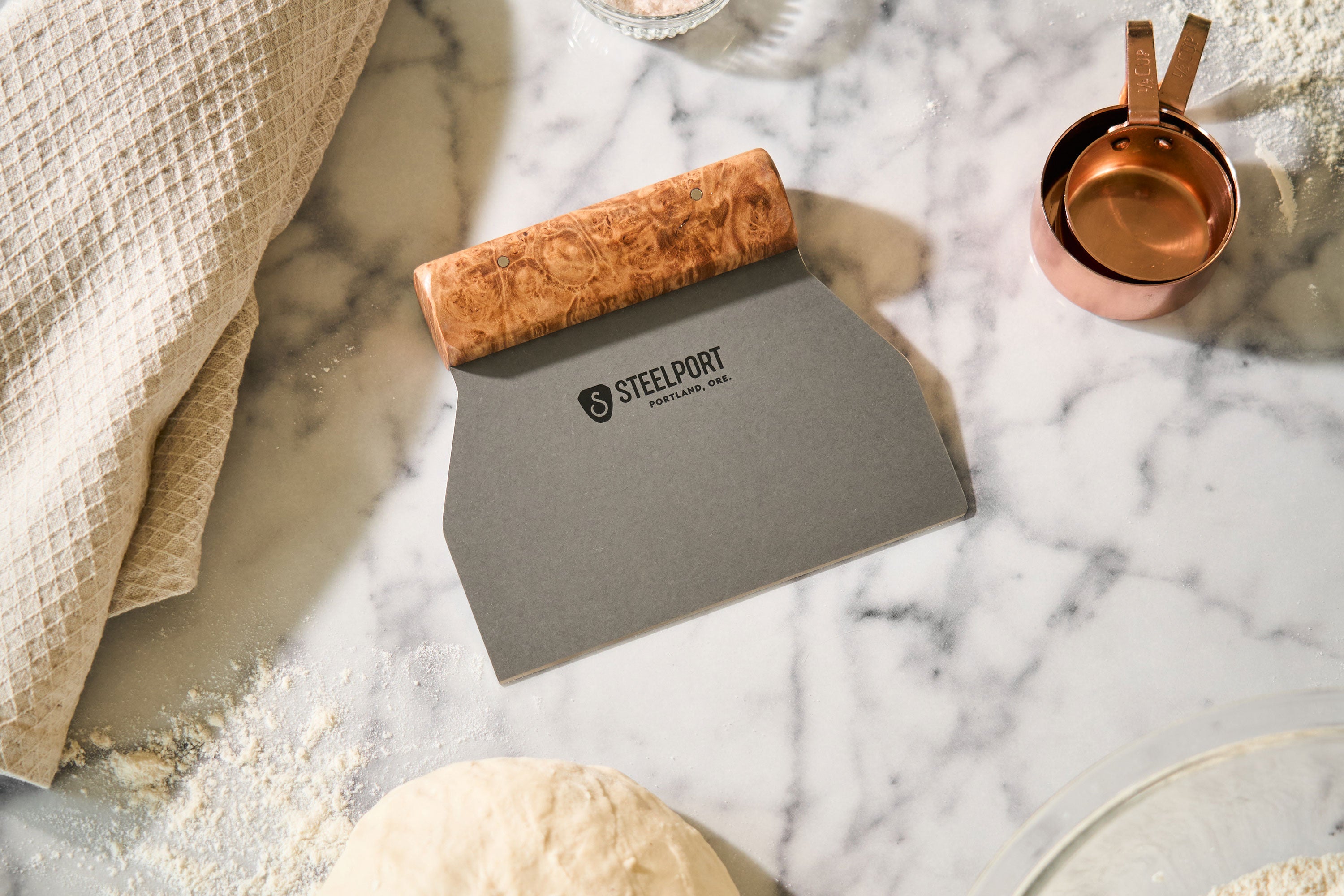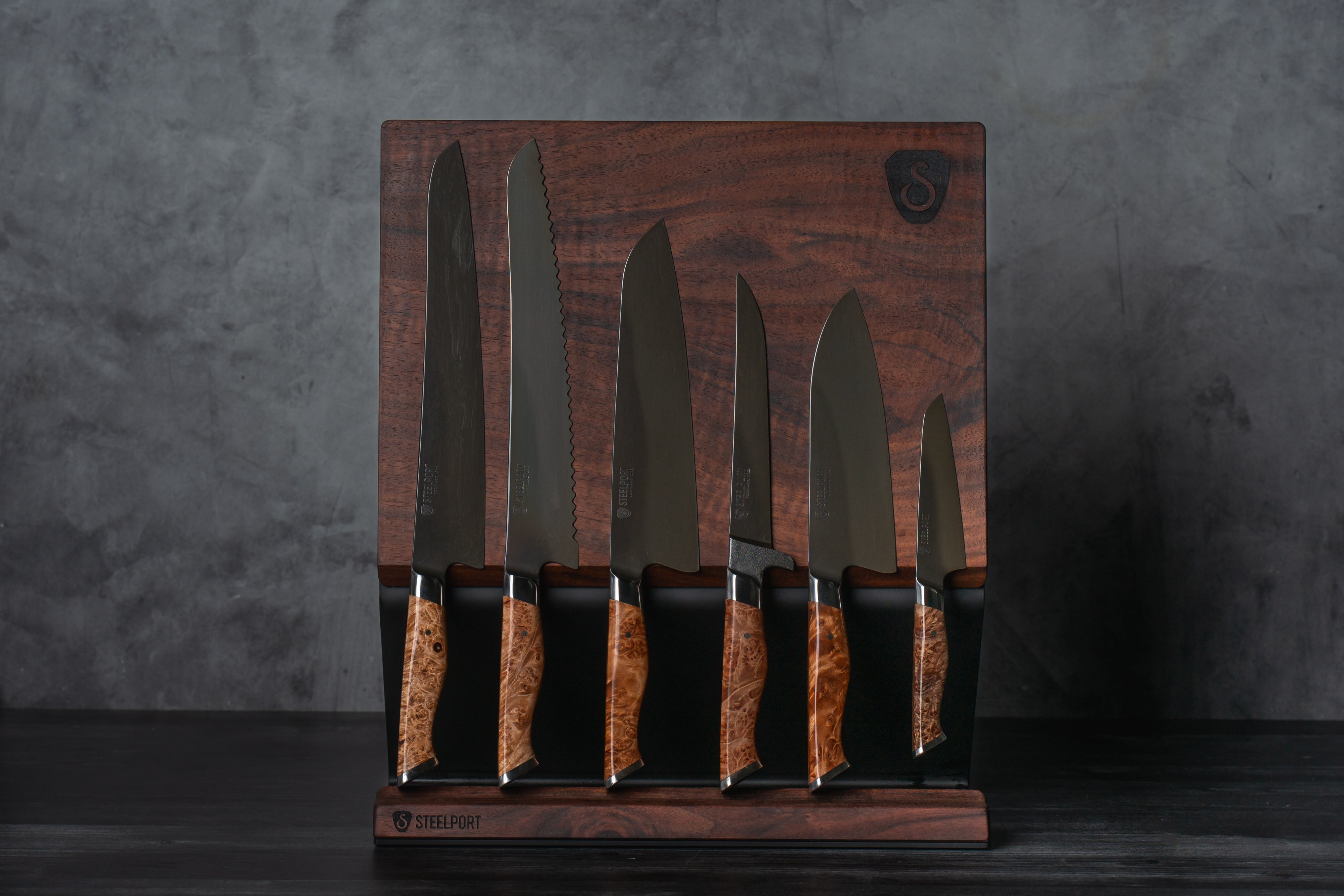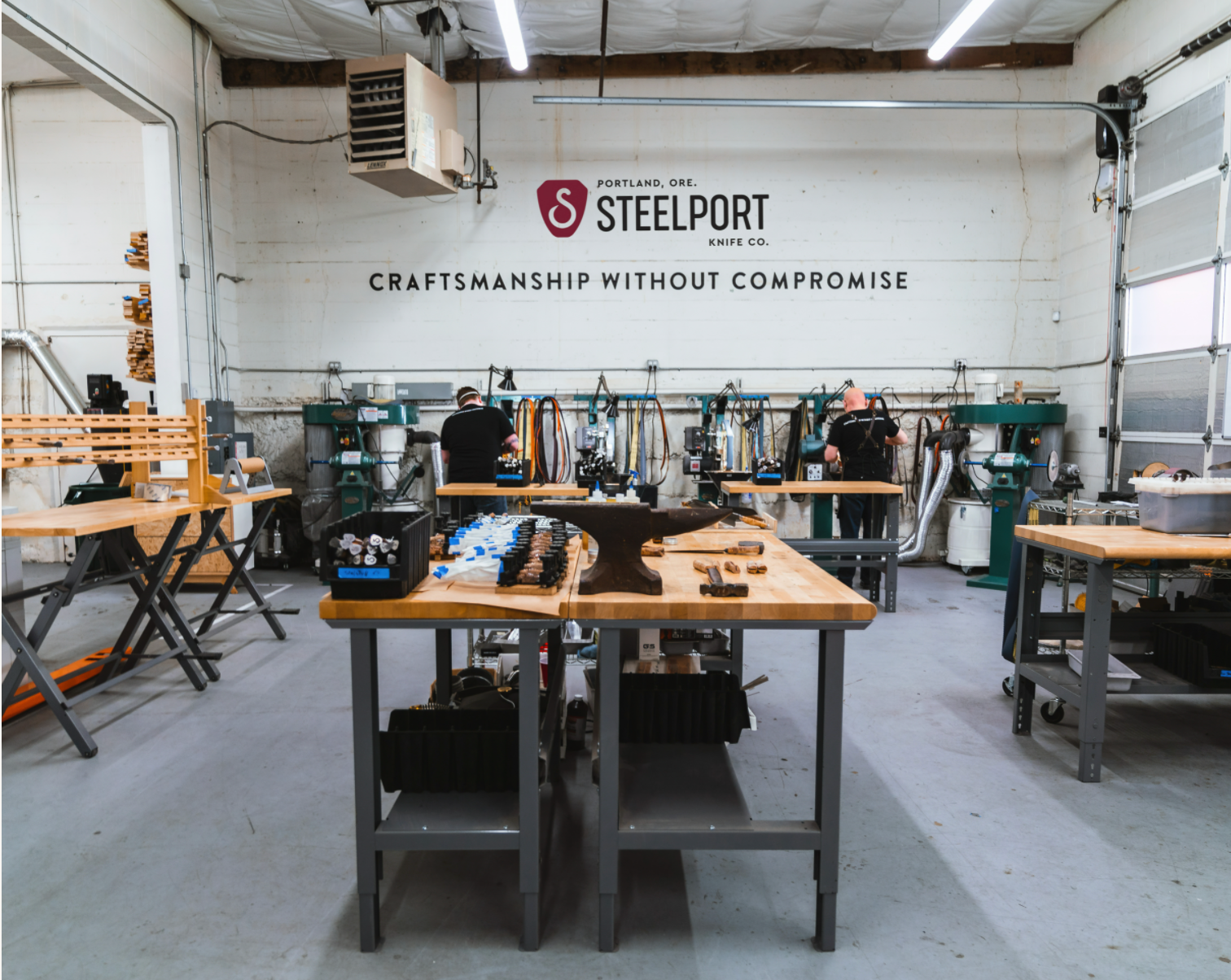STEELPORT recently had the pleasure of hosting the dynamic duo behind Gado Gado and Oma’s Hideaway for one of our Knife Skills Demos. Chef/Owner Tom Pisha-Duffly and Executive Chef DaMenga Weaverhuff walked us through the fine technique of cutting citrus supremes—and shared valuable insights on some often-overlooked fundamentals of great cooking. Want to learn more about Tom’s culinary background and what inspired him to open his celebrated Portland restaurants? Check out our recent Chef Spotlight here.

The Importance of Grip and Control
A proper grip is fundamental for both safety and precision. Whether you’re slicing through delicate herbs or breaking down a larger cut of meat, the way you hold your knife determines your level of accuracy. DaMenga emphasizes that by adjusting your grip, you can make each movement more intentional, ensuring better efficiency and ease in the kitchen. "The closer your grip is to the tip of the knife, the more control you’ll have over the blade," says DaMenga. "Using a proper pinch grip—keeping your fingers right over the bolster—gives you far better control than just holding the handle."

Cooking with All Your Senses
For many home cooks, taste and sight are the primary senses used in the kitchen—but DaMenga highlights the power of listening. "Keeping your senses open—your ears, eyes, and nose—is key to cooking, but listening is often overlooked. When you add something to hot oil, the sizzle is intense at first. As the moisture evaporates, the sound softens, giving you a cue on how it's cooking. You can learn a lot just by using your ears." This attention to auditory cues can help prevent overcooking or burning, ensuring that ingredients are handled with the right timing. Next time you’re in the kitchen, try closing your eyes for a moment and tuning into the sounds of your food—it might change the way you cook.
Intuition Over Instructions
Tom Pisha-Duffly believes that recipes are valuable guides, but real confidence in the kitchen comes from understanding ingredients beyond what’s written on the page. "Recipes are a great starting point, but cooking with intuition is what takes it to the next level. Every lime has a different acidity, every chili varies in heat—so tasting, smelling, and even listening to how ingredients react in the pan matters more than just following instructions. Especially for home cooks, learning how ingredients interact is key. Four minutes over medium heat doesn’t mean much unless you know how to adjust, recover from mistakes, and trust your instincts—something that comes with experience." By developing an awareness of how food reacts under heat and pressure, chefs and home cooks alike can move beyond rigid instructions and cook with more confidence. The key is to start with foundational knowledge and then trust your senses to make adjustments as needed.

Bringing It All Together
Mastering knife skills and learning to trust your intuition are two essential aspects of great cooking. With insights from chefs like DaMenga and Tom, you can start refining your approach—whether it’s improving your knife grip, paying closer attention to cooking sounds, or learning how to adapt recipes to the moment. Cooking isn’t just about following steps—it’s about feeling, listening, and making each movement intentional. For those looking to take their skills further, investing in high-quality tools like STEELPORT knives can make all the difference. Tom and DaMenga are both fans of our 8” Chef Knife and 4” Paring Knife. A great knife becomes an extension of your hand, helping you execute every cut with precision and confidence. And when paired with a chef’s intuition, it can turn a simple meal into something truly extraordinary. If you’re feeling inspired to recreate one of Tom and DaMenga’s dishes at home, here’s the recipe for the Kombu Cured Scallop Crudo they served during the demo. It’s a bright dish with some heat that highlights clean knife work and bold, balanced flavors—just like their cooking.

